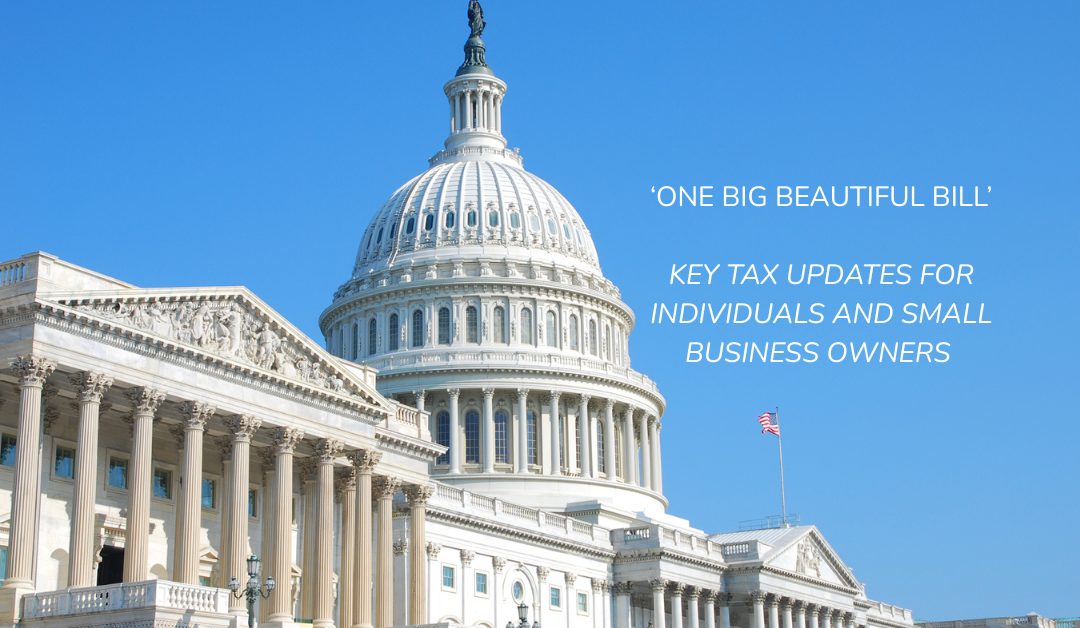
by Blair Butters | Oct 27, 2025 | Auditing, cybersecurity
In today’s digital world, cybersecurity is more important than ever, especially when it comes to your financial data. As scams, fraud attempts and phishing schemes continue to rise, we believe it’s essential to stay informed and proactive. We’re not here to spark fear. Our goal is to create awareness and offer simple steps to help protect your personal and business information. At DMA Tax & Accounting, we take every precaution to safeguard the data our clients trust us with and we’re here to help you do the same. Here’s a look at common risks, smart cybersecurity habits and how we work together to keep your information safe. Common Accounting Cyber Risks Handling financial data involves a number of cybersecurity challenges. Some of the most common risks include: Outdated software or systems that leave networks vulnerable to hackers Sending tax documents over unsecured email, which can be intercepted Weak or reused passwords, making accounts easier to breach Unsecured file sharing, which puts sensitive data at risk While some of these actions might seem minor, they can open the door to major security breaches that will create more hassle and risk in the long run than taking time to create precautions in the short run. Smart Cybersecurity Practices Here are a few smart steps to help you improve your cybersecurity. Some of our recommended best practices include: Use two-factor authentication (2FA) wherever possible. This adds an extra layer of protection even if your password is compromised. Popular tools include Google Authenticator, Microsoft Authenticator, and Authy. Many banks, email providers, and cloud-based software platforms now offer 2FA as a standard feature. ...

by Blair Butters | Aug 14, 2025 | General Tax and Accounting Information, IRS, Tax Credits, Tax Planning
What is the Big Beautiful Bill? Let’s cut through the noise. In July 2025, Congress passed a sweeping tax package officially known as the One Big Beautiful Bill (OBBB), later renamed H.R. 1. Whether you’re a homeowner, small business owner, electric vehicle driver, or someone who just wants to avoid IRS headaches, there are several tax changes that could directly impact your bottom line. Here’s what you need to know. Quick Highlights: OBBB 2025 Tax Changes For Individuals Tax Rates – 37% top rate made permanent SALT Cap – Raised to $40,000 in 2025 (with income limits) New Deductions (2025-2028) – Car loan interest (new U.S.-assembled vehicles), tip income, and overtime pay Senior Deduction – Up to $6,000 ($12,000 for couples) for those 65+ Home Energy Credits End – Must install by Dec. 31, 2025 EV Credits End – Must purchase and take delivery by Sept. 30, 2025 For Small Businesses QBI Deduction – Up to 20% made permanent Bonus Depreciation – 100% expensing made permanent Section 179 – Limit increased to $2.5M Energy-Efficient Deduction Ends – Must complete by June 30, 2026 1099 Threshold – Increases to $2,000 starting in 2026 What’s In It for Individuals and Families Tax Rates The OBBB permanently extended the tax rates passed in the Tax Cuts and Jobs Act (TCJA – 2017) with a top marginal tax rate of 37 percent. Without passage of the OBBB, marginal tax rates would have reverted to pre-TCJA rates, with a top marginal tax bracket of 39.6 percent starting in tax year 2026. SALT Limitations Increased The limitation on individual deductions for certain state and...

by Blair Butters | Jun 9, 2025 | Client Features, company culture
As Wisconsin has warmed into spring, and soon to become summer, tens of thousands of customers flock to a beloved local gem: Kopke’s Greenhouse. This family-run business has blossomed into one of the area’s largest and most community-focused garden centers. At the heart of it all is a deep commitment to people, plants and long-term vision. DMA Tax & Accounting is proud to work with Kopke’s Greenhouse, and we’re thrilled to share more about this small local business with you. DMA Tax & Accounting recently sat down with Josh Smith, Vice President of Kopke’s and second-generation leader, to talk about the story behind their blooming business, as well as the importance of having the right partners and support to sustain growth. From Farm Roots to Floral Fame Founded in 1981 by Gordy Kopke, the business began as a truck vegetable farm. With just a couple of greenhouses and a pickup truck, Gordy was growing, harvesting, and selling everything from squash and zucchini to peppers and cucumbers at farmers markets and to wholesale outlets across southern Wisconsin. “He started as a poor farm kid,” Josh shared. “My mom was one of his first employees, and even we kids were out there picking veggies rain or shine.” A pivotal moment came when Gordy’s mother suggested planting a few flowers to try something new. “They sold faster than anything,” Josh said. “Eventually, we phased out vegetables and went all in on flowers. By the late ’90s, we were a full-on greenhouse operation.” Today, Kopke’s Greenhouse grows over one million plants each season, including 11,000 to 15,000 hanging baskets...

by Blair Butters | Aug 5, 2024 | Tax Planning
Addendum: Beneficial Ownership Information (BOI) Reporting Update In light of a federal court order issued on December 29, 2024, reporting companies are currently not required to file Beneficial Ownership Information (BOI) reports with FinCEN and will not face liability for failing to do so while the order is in effect. However, companies may choose to voluntarily submit their BOI reports during this time. For more information, consult the Financial Crimes Enforcement Network (FinCEN) website or reach out to your tax professional. At the beginning of 2024, the U.S. Government started requiring U.S. companies and many small businesses to file Beneficial Ownership Information (BOI). In this blog post, we detail the following BOI information, so you know where you and your company stand: What is Beneficial Ownership Information (BOI)? Who needs to file? When are the filing deadlines? Recent Legal Changes How to file a BOI As always, contact your Accounting and/or Legal counsel for information specific to your company. What is Beneficial Ownership Information (BOI)? Beneficial Ownership Information refers to data that identifies the individuals who ultimately own or control a legal entity (think corporations, LLCs, and other similar entities). The purpose of collecting this information is to prevent and combat money laundering, terrorist financing, and other illegal activities that can be facilitated through anonymity in corporate structures. The Corporate Transparency Act (CTA), enacted as part of the broader Anti-Money Laundering Act of 2020, introduced new reporting requirements aimed at enhancing transparency and curbing illicit financial activities. A key component of the CTA is the Beneficial Ownership Information (BOI) filing requirement, which affects a significant number of small business entities in...

by Blair Butters | Feb 2, 2024 | Accounting, Bookkeeping
As a small business, one of the biggest challenges you face is maintaining the essence of who you are, and how you serve your community, while also staying competitive as an employer and keeping up on the endless stream of bookkeeping, accounting and tax related needs. Most small businesses on American land are in this middle squeeze spot where you have several employees and accounting and bookkeeping related needs, such as ensuring that those people get paid accurately and on time every week! But your needs don’t justify having a full-time in-house team member. So, what is a small business to do? This is where an outsourced or contracted accounting partner can be a great fit! Outsourced bookkeeping, also called on-site bookkeeping, is one of the fastest growing trends in the bookkeeping and accounting world. It gives you the flexibility to have someone on the inside of your operations and your bookwork, but without you having to take them on as a full-time team member when it’s not necessary! Here are 4 signs that it’s time for you to get the help of an on-site bookkeeper: You’re falling behind or making mistakes: If you find yourself getting overwhelmed with a too-long-to-do list or making mistakes in areas like managing profit and loss statements, expenses, and payroll, this is a sign it’s time to consider getting an on-site bookkeeper. Your staff is growing. Have you recently expanded your team and the number of employees supporting your business? This is a good indicator to bring in someone from the outside to support your team and business so that you can keep...







Recent Comments